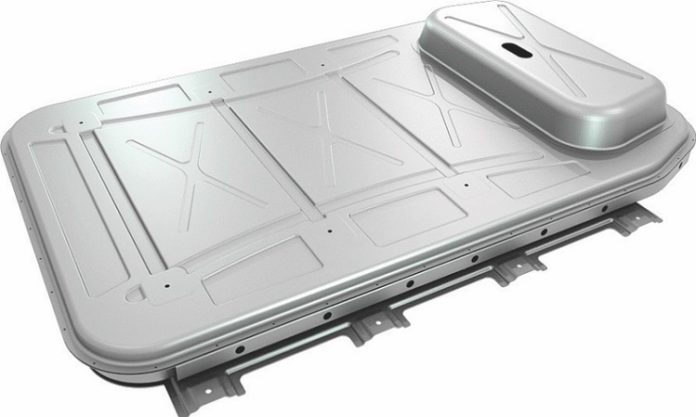The electric battery presents a new market opportunity for aluminum suppliers such as Novelis, which is owned by India’s Aditya Birla Group and supplies aluminum to more than 30 automakers, including Ford Motor Co., Jaguar Land Rover and Nio.
By 2030, electrified vehicles, including plug-ins, could account for 25 to 30 percent of Novelis’ Atlanta-based automotive business. The supplier’s automotive division has seen a 25 percent compounded annual growth rate for the past five years.
Offering design
Novelis will not manufacture the enclosure but offer the design and assembly process to battery manufacturers and automakers. Interest in the product is strong as automakers plot ambitious electric vehicle rollouts, according to the supplier.
“There is a race to mass production to achieve cost parity with the internal combustion engine as fast as possible,” Labat said. “We want to be ahead of the curve with this solution.”
Market opportunity
Aluminum’s inherent properties — corrosion resistance and recyclability — make the metal attractive in electric-vehicle manufacturing. The enclosure regulates thermal conductivity by helping to cool and heat the battery cells.
Using aluminum to enclose a lithium ion battery pack in an EV can reduce weight by about 50%, Novelis said.
Weight savings translates into longer driving range, a major challenge for the competitiveness of electric vehicles. Novelis claims the enclosure can extend vehicle range by 6 to 10% on a single charge. The lightweight aluminum translates into a lower cost per weight at mass-production volumes.
“We believe it’s the best balance of cost with weight efficiency,” said Don Whitacre, senior technical development manager for Novelis.





